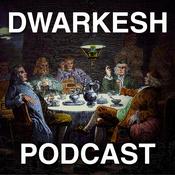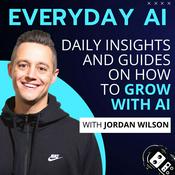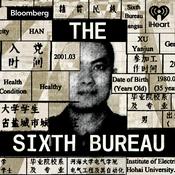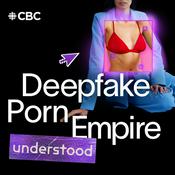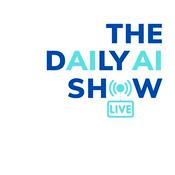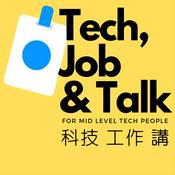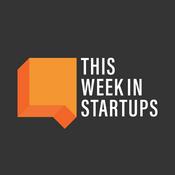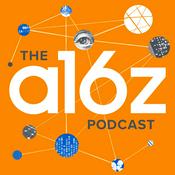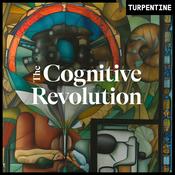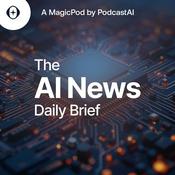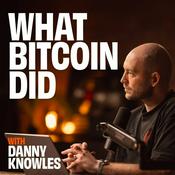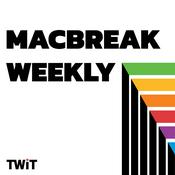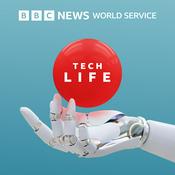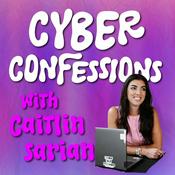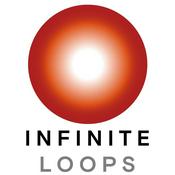322 episodes
- In this episode of Eye on AI, Craig Smith speaks with Amanda Luther, Senior Partner at Boston Consulting Group and global lead of BCG's AI Transformation practice, about what their latest 1,500-company AI study reveals about the widening gap between AI leaders and laggards.
Only 5% of companies are truly "future-built" with AI embedded across their core business functions. These firms are seeing measurable gains in revenue growth, EBIT margins, and shareholder returns. Meanwhile, 60% of organizations are either experimenting or struggling to extract real value.
Amanda breaks down how BCG measures AI maturity across 41 capabilities, how AI impact flows through the P&L, and why leading companies invest twice as much in AI as their competitors. She explains where AI is actually creating value today, from sales and marketing to procurement and retail operations, and why most of that value comes from core business functions, not back-office automation.
The conversation also explores the rise of agentic systems, why many early agent deployments fail, and what it really takes to redesign workflows around AI. Amanda shares practical advice for companies stuck in experimentation mode, how to prioritize the right use cases, and why training and change management matter more than chasing the perfect vendor.
If you want to understand how AI is reshaping competitive advantage in enterprise organizations, this episode provides a data-backed look at what separates the leaders from everyone else.
Stay Updated:
Craig Smith on X: https://x.com/craigss
Eye on A.I. on X: https://x.com/EyeOn_AI
(00:00) The AI Value Gap
(01:17) Inside BCG's 1,500-Company AI Study
(04:14) What "Future-Built" Companies Do Differently
(09:30) How AI Impact Is Measured on the P&L
(12:57) Why AI Leaders Invest 2X More
(14:16) Where AI Is Driving Real Cost Reduction
(16:20) Agentic AI: Hype vs Reality
(20:13) Where Agents Actually Create Value
(24:22) Tech vs Talent: Where the Money Goes
(26:58) Will AI Laggards Slowly Disappear?
(31:58) Why Adoption Is Accelerating Now
(40:07) How to Start: Amanda's Advice to AI Laggards - This episode is sponsored by tastytrade.
Trade stocks, options, futures, and crypto in one platform with low commissions and zero commission on stocks and crypto. Built for traders who think in probabilities, tastytrade offers advanced analytics, risk tools, and an AI-powered Search feature.
Learn more at https://tastytrade.com/
In this episode of Eye on AI, Nick Frosst, Co-Founder of Cohere and former Google Brain researcher, explains why Cohere is betting on enterprise AI instead of chasing AGI.
While much of the AI industry is focused on artificial general intelligence, Cohere is building practical, capital-efficient large language models designed for real-world enterprise deployment. Nick breaks down why scaling transformers does not equal AGI, why inference cost and ROI matter, and how enterprise AI differs from consumer AI hype.
We discuss enterprise LLM deployment, private data, regulated industries like banking and healthcare, agentic systems, evaluation benchmarks, and why AI will likely become embedded infrastructure rather than a headline breakthrough.
If you care about enterprise AI, AGI debates, large language models, and the future of AI in business, this conversation delivers a grounded perspective from inside one of the leading AI companies.
Stay Updated:
Craig Smith on X: https://x.com/craigss
Eye on A.I. on X: https://x.com/EyeOn_AI
(00:00) From Google Brain to Cohere
(03:54) Discovering Transformers
(06:39) The Transformer Dominance
(09:44) What AGI Actually Means
(12:26) Planes vs Birds: The AI Analogy
(14:08) Why Cohere Isn't Chasing AGI
(18:38) Distillation & Model Efficiency
(21:42) What Enterprise AI Really Does
(25:20) Private Data & Secure Deployment
(26:59) Enterprise Use Cases (RBC Example)
(32:22) Why AI Benchmarks Mislead
(34:55) Why Most AI Stays in Demo
(38:23) What "Agents" Actually Are
(43:32) The Problem With AGI Fear
(49:15) Scaling Enterprise AI
(53:24) Why AI Will Get "Boring" #320 Carter Huffman: Exploring The Architecture Behind Modulate's Next-Gen Voice AI
11/2/2026 | 1h 8 mins.This episode is sponsored by tastytrade.
Trade stocks, options, futures, and crypto in one platform with low commissions and zero commission on stocks and crypto. Built for traders who think in probabilities, tastytrade offers advanced analytics, risk tools, and an AI-powered Search feature.
Learn more at https://tastytrade.com/
Voice AI is moving far beyond transcription.
In this episode, Carter Huffman, CTO and co-founder of Modulate, explains how real-time voice intelligence is unlocking something much bigger than speech-to-text. His team built AI that understands emotion, intent, deception, harassment, and fraud directly from live conversations. Not after the fact. Instantly.
Carter shares how their technology powers ToxMod to moderate toxic behavior in online games at massive scale, analyzes millions of audio streams with ultra-low latency, and beats foundation models using an ensemble architecture that is faster, cheaper, and more accurate. We also explore voice deepfake detection, scam prevention, sentiment analysis for finance, and why voice might become the most important signal layer in AI.
If you're building voice agents, working on AI safety, or curious where conversational AI is heading next, this conversation breaks down the technical and practical future of voice understanding.
Stay Updated:
Craig Smith on X: https://x.com/craigss
Eye on A.I. on X: https://x.com/EyeOn_AI
(00:00) Real-Time Voice AI: Detecting Emotion, Intent & Lies
(03:07) From MIT & NASA to Building Modulate
(04:45) Why Voice AI Is More Than Just Transcription
(06:14) The Toxic Gaming Problem That Sparked ToxMod
(12:37) Inside the Tech: How "Ensemble Models" Beat Foundation Models
(21:09) Achieving Ultra-Low Latency & Real-Time Performance
(26:16) From Voice Skins to Fighting Harassment at Scale
(37:31) Beyond Gaming: Fraud, Deepfakes & Voice Security
(46:14) Privacy, Ethics & Voice Fingerprinting Risks
(52:10) Lie Detection, Sentiment & Finance Use Cases
(54:57) Opening the API: The Future of Voice Intelligence- This episode is sponsored by tastytrade.
Trade stocks, options, futures, and crypto in one platform with low commissions and zero commission on stocks and crypto. Built for traders who think in probabilities, tastytrade offers advanced analytics, risk tools, and an AI-powered Search feature.
Learn more at https://tastytrade.com/
AI is changing how software is built, but it is also quietly breaking how security works.
In this episode of Eye on AI, host Craig Smith sits down with Subho Halder, co-founder and CEO of Appknox, to unpack a growing and largely invisible risk. AI-powered mobile apps that look safe but are not.
Subho explains how the explosion of ChatGPT-style app wrappers, agentic AI, and rapid app creation has transformed software from static code into living systems, and why traditional security models no longer hold up. From fake AI apps harvesting personal data to AI agents lowering the barrier for attackers, this conversation explores the real-world consequences of AI at scale.
You will also hear why trust has become a core security metric, how app stores struggle to detect malicious behavior, and why developer burnout is rising as AI-generated code shifts risk downstream instead of removing it.
This episode is essential listening for founders, developers, security leaders, and anyone building or relying on AI-powered applications.
Stay Updated:
Craig Smith on X: https://x.com/craigss
Eye on A.I. on X: https://x.com/EyeOn_AI
(00:00) Why Mobile Apps Became a Massive Trust and Security Risk
(02:45) Subho's Journey and the Birth of AppNox
(06:17) Fake AI Apps, Malicious Wrappers, and Silent Data Theft
(11:03) How Fake Apps Slip Past App Store Reviews
(15:26) The Data Harvesting Business Model Behind Fake Apps
(17:11) AI for Security vs Security for AI
(22:16) Why Trust Is Becoming a Measurable AI Performance Metric
(26:20) User Intent, Data Control, and Minimum Data Sharing
(31:10) Trust, Governments, and Why Where AI Lives Matters
(35:40) What AppNox Found in Retail App Security Audits
(39:16) How AppNox Protects Apps at Scale
(42:05) The Future of Security - Construction is one of the least digitized industries in the world, and not because it resists technology. It resists bad technology.
In this episode of Eye on AI, Craig Smith sits down with Olek Paraska, CTO of Togal AI, to break down why construction productivity has barely improved in 50 years and why pre-construction is the real bottleneck holding the industry back.
Olek explains how most estimating and takeoff work is still done manually, why automating this phase can unlock massive efficiency gains, and how AI works best in construction when it acts as a perception and reasoning layer rather than a replacement for human judgment.
The conversation explores computer vision, agentic AI, human-in-the-loop systems, and why respecting real-world constraints is essential for AI to deliver real ROI. It also looks ahead to a future where floor plans, materials, costs, and constructability can be reasoned about together, long before construction begins.
This episode is a deep dive into how AI can finally move construction forward by solving the right problems, in the right order.
Stay Updated:
Craig Smith on X: https://x.com/craigss
Eye on A.I. on X: https://x.com/EyeOn_AI
(00:00) Why Construction Is Desperate for Better AI
(01:06) Olek's Path From Software to Construction
(02:17) Why Construction Productivity Has Stalled for Decades
(04:33) The Pre-Construction Bottleneck No One Talks About
(06:17) How Takeoffs Are Still Done Manually
(09:15) Why Construction Rejects Bad Technology
(11:18) How Togal Found the Right Problem to Solve
(12:14) From Computer Vision to Reasoning AI
(17:44) What Agentic AI Looks Like in Pre-Construction
(20:59) Turning Floor Plans Into Materials and Costs
(28:18) The Real ROI of AI for Contractors
(47:11) The Long-Term Vision for AI in Construction
More Technology podcasts
Trending Technology podcasts
About Eye On A.I.
Eye on A.I. is a biweekly podcast, hosted by longtime New York Times correspondent Craig S. Smith. In each episode, Craig will talk to people making a difference in artificial intelligence. The podcast aims to put incremental advances into a broader context and consider the global implications of the developing technology. AI is about to change your world, so pay attention.
Podcast websiteListen to Eye On A.I., Hard Fork and many other podcasts from around the world with the radio.net app
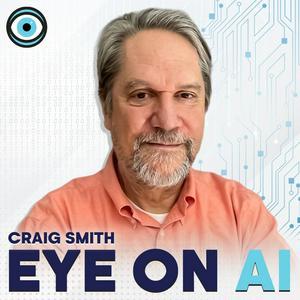
Get the free radio.net app
- Stations and podcasts to bookmark
- Stream via Wi-Fi or Bluetooth
- Supports Carplay & Android Auto
- Many other app features
Get the free radio.net app
- Stations and podcasts to bookmark
- Stream via Wi-Fi or Bluetooth
- Supports Carplay & Android Auto
- Many other app features


Eye On A.I.
Scan code,
download the app,
start listening.
download the app,
start listening.





